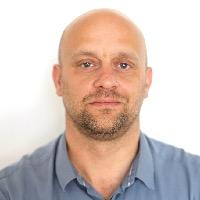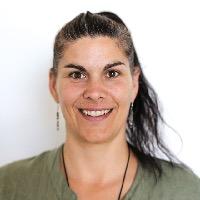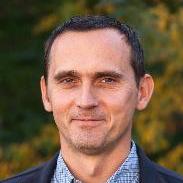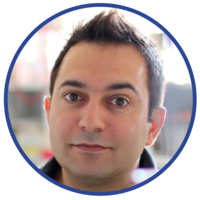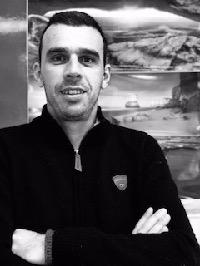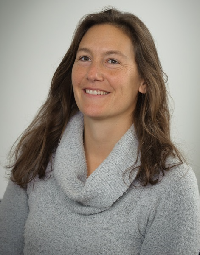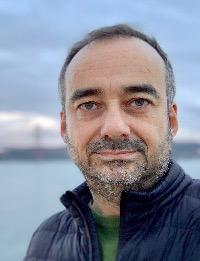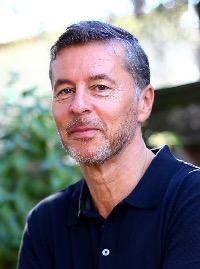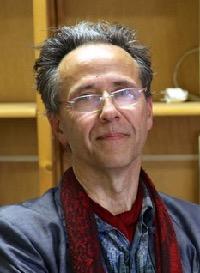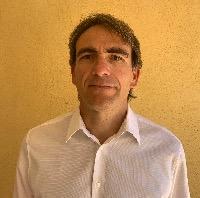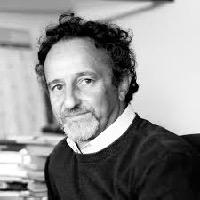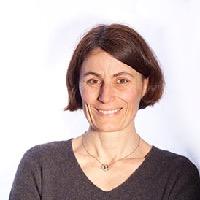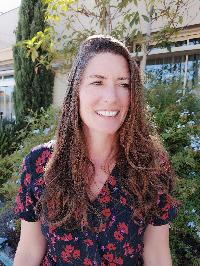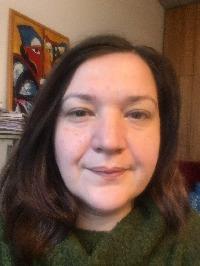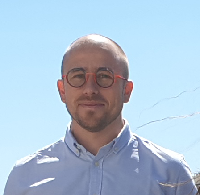Leader
Research Director, DR2 CNRS
Tel: +33 (0)4 93 37 77 91
Email: eric.rottinger@univ-cotedazur.fr
After a PhD (2006) in Molecular and Cellular Developmental Biology that I carried out at the marine station in Villefranche-sur-mer, I moved to the Kewalo Marine station of the University of Hawaii (USA, 2007-2012) and started to work on the evolution of gene regulatory networks. During that time, I co-founded, and since then preside the non-profit organization Kahi Kai ("Unique Ocean" in hawaiian), that promotes the interest of marine organismes for fundamental and biomedical research to the larger public. In 2012, I received an ATIP-Avenir award to join the Institute for Research on Cancer and Aging in Nice (IRCAN, FRA) and established my research team aimed at studying the impressive regenerative capacity, stress resistance and longevity of cnidarians (sea anemones, corals).
Current members
Engineer, IRCN Inserm
Tel: +33 (0)4 37 77 39
Email: aldine.amiel@unice.fr
After a PhD on oogenesis regulation and axial patterning establishment on Cnidaria Hydrozoan at the Villefranche sur mer Marine Station (IMEV - Sorbonne University - France), Aldine moved with a long term EMBO fellowship to the Kewalo Marine Station in Honolulu (University of Hawaii at Manoa – USA). There she focuses her work on the identification and role of the organizer and cell fate induction on axial patterning on Lophotrochozoa Polychaete. She moved back to France with a FRM return post-doctorate fellowship at the Institute for Research on Cancer and Aging in Nice (IRCAN – Université Côte d’Azur). In the Röttinger team – Stress response, Regeneration and Longevity - located at the Institute for Research on Cancer and Aging in Nice (IRCAN), part of the IFR Marine Ressources from the Université Côte d’Azur, Aldine focus her research on stem cell biology of Anthozoa Cnidaria (corals and sea anemones). She studies more specifically the tissus and stem cell dynamics during the regeneration process of the sea anemone Nematostella vectensis, that possesses numerous advantages as a lab model and incredible potential for stress resistance, whole body regeneration and long live capacity. She has high interest in the ability of these fantastic marine organisms to adapt into various environment and how these « fragile and delicate » Cnidaria are coping with stress, regenerate so well and, for some of them able to long live. She is co-leading the IRCAN Marine Invertebrate facility which develop innovatives and non-conventional models for Aging Science and the Animal Welfare structure of the Nice Medical School. In Education, she's focusing on the valorization of marine resource potentials for society, particularly for biomedical aspects. She is also co-founder of the Kahi Kai NGO, which works to promote awarness on the importance of Marine Ressources in fundamental as well as biomedical Science, and for the Society. This NGO also unite marine sciences with societies to aim at a better conservation/protection of our Natural Marine Inheritage
PhD Student (ENS, UCA)
Tel: +33493377739
Email: aurore.vullien@etu.univ-cotedazur.fr
While injury-induced regeneration is a very widespread phenomenon among metazoans, regenerative abilities vary a lot depending on species, from some tissues only to whole-body restoration. In order to understand if regeneration relies on universal mechanisms and why some species like humans have very limited regenerative abilities, we focus on the initiation of regeneration and its control, and more specifically on ROS production. ROS have been shown to be essential for regeneration in several models through the activation of MAPK and/or JNK pathways and by triggering cell death, which induces responses in neighboring cells such as proliferation. My PhD aims at deciphering the role that ROS play during the initiation of regeneration in two evolutionarily distant animals, the cnidarian Nematostella vectensis and the annelid Platynereis dumerilii that both possess extensive regenerative capacities. This project will be carried in tight collaboration (PhD co-supervision) with the lab of Michel Vervoort that studies regeneration and stem cell biology of Platynereis at the Institut Jacques Monod in Paris. I will characterize the production of ROS following injury in these models, study the phylogeny and expression of genes related to ROS metabolism and assess the necessity of ROS production for further steps of the regenerative process
Assistant Professor, MCU UCA
Tel: +33 (0)4 93 37 77 39
Email: Didier.FORCIOLI@unice.fr
I am by training a molecular and population geneticist. During my career, I have worked and published on plant reproductive systems (gynodioecy and cytonuclear conflict), on xenobiotics resistance (in insects pests and weeds) and more broadly on the development of molecular markers for genetic diversity in marine organisms (in Cnidaria, brown algae and Mollusks). In the recent years, my research has been focused on the study of the genetic diversity in symbiotic Cnidarians, and on the adaptive consequences at the holobiont level of the interplay between animal host and algal symbionts genetic diversities (in soft and hard corals and sea anemones). My latest interest is in the link between adaptation and speciation in these models.
PhD student (UCA)
Tel: +33 (0)4 93 37 77 39
Email: elisabeth.beauson@gmail.com
PhD student (CNRS, MSCA REGENERATE-IT DN)
Tel: +33 (0)4 37 77 39
Email: kai.hofmaenner@etu.univ-cotedazur.fr
I am from Switzerland. I finished my MSc in Cell Biology in the spring of this year (2023) with a project entitled "Identifying the antigenic components recognized by IgG on the surface of Agathobacter rectalis and Enterococcus faecalis " in the laboratory of Prof. Dr. Emma Wetter Slack, ETH Zurich. During the summer I had the opportunity to do an internship on fibroblast behaviour in zebrafish in the group of Prof. Dr. Darren Gilmour, University of Zurich. This fall (2023), I joined Dr. Eric Röttinger’s team at the IRCAN, where we focus on the identification and characterization of regeneration-specific elements in the sea anemone Nematostella vectensis.
PhD student (MESRI, UCA)
Tel: +33 (0)4 93 37 77 39
Email: keyla.plichon@gmail.com
Researcher, Non permanent (CNRS)
Tel: +33 (0) 4 93 37 77 39
Email: haupaix.nicolas@gmail.com
(Zoo-)Technician, TCN CNRS
Tel: +33 (0)4 93 37 77 39
Email: renaud.rebillard@univ-cotedazur.fr
PhD student (MESRI, UCA)
Tel: +33493377739
Email: andreoni.rita.lou@gmail.com
Assistant Professor, MCU UPMC
Tel: +33 (0)4 93 37 77 39
Email: stephanie.barnay-verdier@upmc.fr
I’m currently working on the emerging model, the symbiotic Cnidarian, Anemonia viridis, for biomedical and environmental questions. More particularly, thanks to an innovative in vitro cell culture tool developed and validated in the team, I’m looking to decipher molecular and cellular mechanisms involved in particular properties of these organisms such as their high regenerative capacities, extended longevity, high resistance to hyperoxia (linked to its symbiotic lifestyle) or their cellular response to oxidative stress and environmental perturbations that is tightly linked to symbiosis breakdown.
Alumni
PhD Student (IDEX Jedi, UCA)
Tel: +33493377739
Email: adrien.poquet@univ-cotedazur.fr
Marine organisms, and especially cnidarians, beside their ecological fundamental importance could retain in their molecular functioning tomorrow's human health solutions for a better living. To explore that possibility, my PhD project focusses on the identification and functional characterization of major genes potentially implicated in cnidarian stress response. This work is centered on deciphering the role of FoxO gene, a transcription factor already described as a major module of stress resistance and longevity from yeast to Human. I explore its involvement using firstly or lab model, the sea anemone N. vectensis, through stress experiments in controlled lab conditions and genetic engineering. Then I explore the existence of similar response pathways in hermatypic corals.
Researcher, Non permanent (UCA-SIGNALIFE)
Tel: +33 (0)4 93 37 77 39
Email: Barbara.PORRO@unice.fr
Technician, AJT UCA
Tel: +33 (0)4 93 37 77 39
Email: brigitte.poderini@unice.fr
Engineer, Non permanent CNRS
Tel: +33 4 93 37 77 91
Email: clara.fricano@gmail.com
PhD student
Tel: +33 (0)4 93 37 77 39
Email: hereroa.johnston@unice.fr
I am interested in understanding the role that play kinases in extreme regeneration.
Artist, UCA Chair Art & Science
Tel: +33493377739
Email: ikopelman@gmail.com
I am a visual artist (http://www.irenekopelman.com). My work with scientific research has developed since my early projects starting with a collection of holotypes at the Geological Museum in Amsterdam.
Since then I have continued to explore this interdisciplinary approach across a number of topics, collaborations and methods of working.
While I have worked for some years on biological studies, my experiences have predominantly been focused on ecology, such as my long-term collaboration with the Smithsonian Tropical Research Institute (STRI) where I have collaborated with researchers working on lianas, mangroves, litter studies and marine invasive species. This diversity has brought new elements into my work, encouraging me to be responsive and evolve according to the set of conditions or subjects I encounter.
I am currently a visiting artist at the lab working on a project titled ‘ If we were to look at regeneration with a different eye’ funded by the Advanced Research Program at the Université Côte d'Azur. The project has been initiated as an artistic-scientific collaboration of the team with the Tiozzo’s Lab at the Laboratoire de Biologie du Développement de Villefranche / Institut de la Mer de Villefranche.
I am working with the researchers at both labs to develop responses to their work and make new observations through drawing, as a mode of investigation into the visual characteristics of their vital field of study. It is building on this approach that I wish to facilitate new forms of observation through the study of regeneration.
As an artist, my ultimate goal is to create a body of art works (including drawings, paintings, sculptures and graphic material). The aim is to focus on a part of nature that has been overlooked in the context of contemporary art: marine invertebrates. The art-works produced during the project will be shared with the public in various and different formats at Musée d'art moderne et d’art contemporain (MAMAC).
Post-Doc INSERM
Tel: +33 (4) 93 37 77 39
Email: jacob.warner@unice.fr
I am interested in gene regulatory networks and their function in the context of different developmental processes. During my postdoc, I studied the role of these networks during regeneration of the sea anemone Nematostella vectensis. Since january 2019, I am appointed as a assistant professor at the University of North Carolina Wilmington.
Researcher, Non permanent (FRM, INSERM)
Tel: +33 (0)4 93 37 77 39
Email: joao-e.carvalho@univ-cotedazur.fr
My current research stems from the desire to better understand the relationship between extreme regenerative capacity and longevity. To study this question I’m unravelling the biomedical potential of marine organisms, namely an emerging sea anemone model, Nematostella vectensis. In detail, I’m studying the roles of telomeres and telomerase in the regeneration of Nematostella, as well as how these elements impact the “ageing” process of this model organism.
Researcher, Non permanent (CNRS)
Tel: +33 (0) 4 93 37 77 39
Email: Marta.Scelzo@univ-cotedazur.fr
Engineer, Non permanent UCA
Tel: +33 (0)4 93 37 77 39
Email: maxence.burtin@etu.univ-cotedazur.fr
PhD Student (IDEX-Jedi, UCA)
Tel: +33(0)4 93 37 77 39
Email: megan.clampitt@etu.univ-cotedazur.fr
Corals possess amazing biological features (symbiosis, regeneration, longevity for some) and play crucial roles (nursery, physical barrier) in the coral reef ecosystem. As a graduate with a Master's in Science, Conservation, and Valorization of Marine Resources combined with previous work in coral restoration and reef surveying and monitoring, my main interest and passion lays in preserving this unique marine environment. Therefore, my PhD research is centered around coral reefs, specifically investigating if the use of machine learning/AI approaches will enable us to index coral health and develop new means to monitor coral reefs faster and more efficiently. Combined with -omics data, such the ones obtained from the TARA Pacific expedition, we will further gain new insight into the molecular mechanisms that enable corals to fight against global environmental changes and for some of them, escape the aging process.
Engineer, Non permanent CNRS
Tel: +33 (0)4 93 37 77 39
Email: noragab.sadoun@gmail.com
PhD Student (CIFRE, UCA)
Tel: +33493377791
Email: pauline.cotinat@etu.univ-cotedazur.fr
Behaviour of symbiotic Cnidarian cells : from the study of cell aging processes to the identification of bio-active molecules.
The aim of my PhD project is to understand the extended longevity of cnidarians by exploring their capacity to face pro-oxidative conditions. Thanks to an innovative tool, a primary cell culture of gastrodermal cells from the symbiotic sea anemone Anemonia viridis, we attempt to identify the molecular actors involved in the resistance. My studies are carried out in collaboration with the cosmetics industry in order to generate innovative and environmental friendly products.
Research teams

